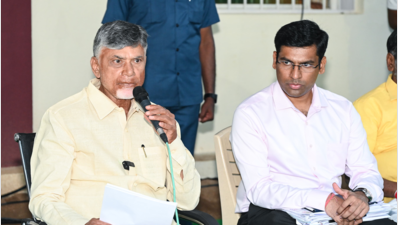TIRUPATI: Andhra Pradesh chief minister Nara Chandrababu Naidu, who has been appealing to families to bear more children to be able to tackle the aging population scenario which has emerged as a major concern for many countries across the globe, once again spoke on the issue on the sidelines of his two-day visit to his native village Naravaripalli near Tirupati on the Sankranti festival eve.
Speaking to reporters at Naravaripalli, Naidu observed that several European countries, Japan, Korea and other countries incentivised family planning policy and the total fertility rate in these countries has been abysmally low and as such these countries are today battling the aging population concerns and have been inviting Indians to come to their countries.
“This is a wake-up call for India as we too have been incentivising the family planning concept and have been restricting families to have limited number of children as otherwise some years down the line India too will face the aging population concerns and we will be left with very little to do at that stage. But if we react to the situation with the right policies, India could great demographic dividends by 2047”, CM expressed caution.
Pointing out that in the past netas were debarred from contesting the panchayat and local bodies polls if they had more children, Naidu stated that today we will have to formulate rules to prohibit netas with less children from contesting the elections.
In August last year, the TDP govt junked the rule that barred people with more than two children from contesting the panchayat and local bodies polls in Andhra Pradesh.
After Andhra Pradesh CM stirred up a nationwide debate on the issue recently, his Tamil Nadu counterpart MK Stalin also recently echoed Naidu’s views and urged the people of Tamil Nadu to bear more children.
While the two-child per family policy was strictly adhered to by all South Indian states as is evident from the total fertility rate of these states which is at 1.73, which is well below the national average of 2.1, the TFR of five big heartland states of Uttar Pradesh, Madhya Pradesh, Bihar, Rajasthan and Jharkhand is at 2.4, which is much higher than the national average.
And when the national population policy brought in 2000 focussed on contraception to bring down the TFR to replacement levels by 2010 to be able to achieve a stable population by 2045, the national family health survey conducted between 2019-2021 has reported that the all India TFR has already gone below the replacement levels of 2.1, which means that the nation’s population is no longer growing at a rate that would replace itself, which eventually may lead to a decline in the population over a period of time.




